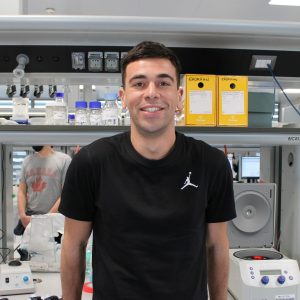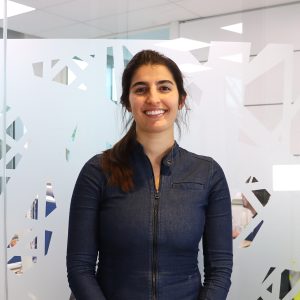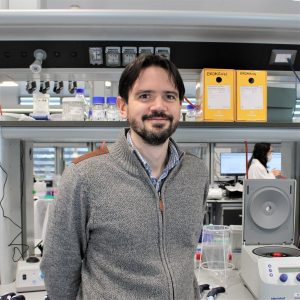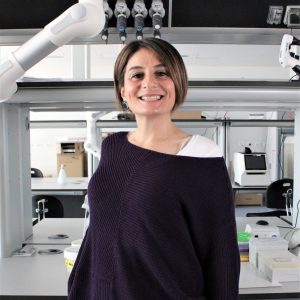
Soranzo Group
Soranzo Lab – Genetic basis of complex human traits
Understanding how genetic variation influences human traits and disease is one of the great challenges of modern biology and medicine. Our team uses high-resolution, population-scale genomic analyses of phenotypes representing different hierarchical levels of gene regulation, cellular and organismal phenotypes,to unravel these complex relationships.
The lab is in the progress of relocating from the Wellcome Sanger Institute/ University of Cambridge to Human Technopole Italy, where Nicole co-leads the Genomics Research Centre and directs the Population and Medical Genomics Programme.
Aetiology of complex human diseases
Over the last decade, we have contributed to international efforts to discover genetic determinants of quantitative risk factors and biomarkers of inflammation and immunity. These studies have discovered thousands of genetic loci, provided substantial new information on the general properties of the allelic architecture of these traits, and unravelled causal contributions to disease pathways. For these studies, we have applied genomic scans based on SNP arrays (ref 1-9) and whole-genome sequencing (UK10K Cohorts Project, ref 11-13) to population-based cohorts, discovering rare genetic variation and causal pathways leading to several complex human disorders.
Molecular and functional basis of human diseases of blood and immunity
We also use the power of other genomic technologies (e.g. transcriptomics, and epigenomics) to drive a greater understanding of themolecular and functional basis of diseases of blood and immunity. For instance, in the human genetic component of the high-impact EU BLUEPRINT Project, we completed the integrated analysis of high-resolution genetic, epigenetic and transcriptomic data in three major human immune cell types (CD14+ monocytes, CD16+ granulocytesand naive CD4+ T cells) in 200 healthy volunteers (ref. 14), and demonstrated genetic influences mediated by gene regulation at autoimmune disease loci. We are now applying a host of different approaches to advance understanding on the genetic control of blood cell formation, including large-scale surveys of RNA readouts in blood of thousands of healthy donors from multiple populations using single-cell RNA technologies, and the use of a host of in vitro techniques (eg. Massively parallel reporter assays and CRISPR screens) to test the function of human variation in diverse reference blood cell lines.
Therapeutic target prioritisation
We exploit multi-omic technologies to advance hypotheses of therapeutic target prioritisation for human diseases (ref. 15-17). Mapping of metabolic function changes associated with disease loci informs understanding of causal pathophysiological and molecular components of disease and can be applied to aid the prioritization of new biological targets in drug discovery programmes and repurposing existing drugs for new indications. Current efforts use rare loss-of-function (LoF) variation to study the phenotypic impact of inactivating established drug target genes(https://www.opentargets.org). When carried by an otherwise healthy individual, these variants can provide evidence for safety of modulating that particular target to reduce disease risk.
References
- (1) Soranzo et al. Blood 2009;
- (2) Soranzo et al. Nat. Genet. 2009;
- (3) Ganeshet al. Nat. Genet. 2009;
- (4) Prokopenko et al. Nat. Genet. 2009;
- (5) Dupuis et al. Nat. Genet. 2010;
- (6) Gieger et al. Nature 2011;
- (7) van der Harst et al. Nature 2011;
- (8) Iotchkova et al. Nat Genet 2016;
- (9) Astle et al. Cell 2016;
- (10) Vuckovic et al. Cell 2021;
- (11) Walter et al. Nature 2015;
- (12) Timpson et al. Nat. Comm. 2014;
- (13) Huang et al. Nat. Comm. 2015;
- (14) Chen et al. Cell 2016;
- (15) Suhre et al. Nature 2011;
- (16) Shin et al. Nat. Genet. 2014;
- (17) Shin et al. Gen. Biol. 2014.
Group members
-
 Nicole Soranzo
Nicole Soranzo
Head of Genomics Research Centre - Population & Medical Genomics -
 Paola Benaglio
Paola Benaglio
Senior Bioinformatician -
 Davide Bolognini
Davide Bolognini
Senior Bioinformatician -
 Aurora Casiraghi
Aurora Casiraghi
Undergraduate Intern -
 Giuditta Clerici
Giuditta Clerici
PhD Student -
 Michela Colombo
Michela Colombo
Senior Technician -
 Beatrice Costa
Beatrice Costa
Postdoc -
 Andrei Cristea
Andrei Cristea
PhD Student -
 Thomas Sumner Dudley
Thomas Sumner Dudley
Undergraduate Intern -
 Edoardo Giacopuzzi
Edoardo Giacopuzzi
Senior Bioinformatics Technician -
 Ilaria Gori
Ilaria Gori
Senior Technician -
 Francesca Molella
Francesca Molella
Undergraduate Intern -
 Chiara Paleni
Chiara Paleni
Postdoc -
 Alessandro Raveane
Alessandro Raveane
Postdoc -
 Federica Santonastaso
Federica Santonastaso
PhD Student -
 Daniela Zanotti
Daniela Zanotti
PhD Student
